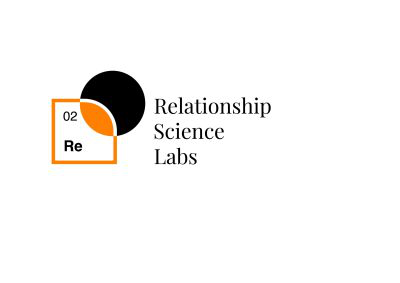Jealousy is a detrimental but inevitable part of any relationship. It’s a completely natural emotion. However, it may spiral into destructive behavior patterns, compromising trust and communication, thus harming the relationship.
Managing jealousy can be challenging since it is fueled by self-doubt and insecurity. Overcoming these feelings is integral for maintaining healthy relationships and personal well-being. Ignoring them can lead to detrimental effects on both your relationship and mental health.
This article will provide the underlying causes of jealousy, the transformative power of empathy in managing this emotion, and suggest effective communication strategies to foster emotional growth, enhance trust, and strengthen connections in relationships.
Understanding jealousy in relationships
Jealousy is an amalgamation of insecurity, lack of communication, and past unpleasant experiences. It often arises when partners keep secrets from each other, aren’t vocal about their feelings, or haven’t resolved their past issues.
This emotion can manifest in various ways within relationships. Here are some signs of jealousy that you might encounter:
- Lack of trust in your partner becomes apparent when you’re apart
- Anger arises when someone of the opposite gender interacts with your partner
- Anxiety often engulfs you, fearing your partner might cheat or find someone better
- The constant urge to know the whereabouts of your partner all the time
- Baseless accusations of cheating without any proof
- Frequently monitoring the social media accounts or their phones
If you encounter any of these, it’s time to work on yourself and try to understand your partner’s perspective. This effort can lead to the improvement of your relationship.
Power of empathy in overcoming jealousy
Empathy is one of the most potent tools in maintaining a successful relationship. According to the Cambridge Dictionary, it is the ability to understand someone’s feelings and experiences by imagining them from their point of view. In other words, it’s putting yourself in someone else’s shoes and understanding their perspectives.
According to research, how partners empathize with each other plays a huge role in a healthy relationship. Empathy allows partners to see how their underlying insecurities and fears manifest as jealousy. It also creates a safe environment for couples to discuss their worries and work together to find a solution that benefits their relationship.
This awareness can help them manage jealousy in relationships, fostering a healthier and more fulfilling relationship. It can also pave the way for personal development, which enables individuals to cultivate the emotional intelligence necessary to manage and control jealousy.
Ways to cultivate empathy in relationships
Research consistently connects empathy to relationship satisfaction, fostering an environment where both partners can flourish and forge a strong emotional bond. Given that empathy serves as a fundamental component of human interaction and plays a pivotal role in one’s well-being, here’s how you can cultivate empathy in your relationship:
Enhance communication
Communication is vital to healthy companionship. It’s important to acknowledge what someone else is sharing and make them feel that you understand their perspective. Employing phrases like, “I understand how you must be feeling” or “I know what you’re feeling, and those are valid emotions” helps the other person feel safe and understood.
Active listening
Another key component of empathy is active listening. The more you listen to your partner, the more they’ll feel that they’re being recognized. It’s always nice to pause between talking and imagine how the other person might feel. This can also help you know their emotions better, whether sadness, anxiety, or fear.
Embrace vulnerability
An empathetic connection requires two partners to be vulnerable with each other. This entails sharing your own experiences and challenges and creating an environment where your partner feels safe and free from judgment.
Offer help only when needed
Your partner may not need a solution to their problems every time they share something. It’s better to ask if they are seeking a solution to their problems or only want to express themselves. This form of communication can clarify what kind of comfort your partner requires and can also help you understand your partner and their needs.
Read more: Gregory J. Depow: Strategies for Coping With Empathy | Doing Well #13
Seeking professional help and resources
Seeking professional help such as therapy or incorporating best practices for improving mental health can be beneficial for managing jealousy. Here are some approaches you can consider for the betterment of your mental well-being and your relationship:
Individual therapy
Participating in individual therapy has the potential to modify negative behavior and thought patterns. Also, it provides a secure space for individuals to voice their emotions, insecurities, and worries.
This therapy works on individual issues that trigger jealousy and helps develop better coping mechanisms, which can involve promoting open communication, setting healthy boundaries, and developing shared interests.
Read more: Best Practices on Improving Your Mental Health
Couple counseling
Couples may join counseling to work on issues they face together. This involves dealing with jealousy triggers, improving communication and trust, and incorporating empathy into the relationship.
Through this, partners can have an outlet or a place to talk about their feelings and work together to compromise and solve their problems.
In conclusion
While jealousy can be damaging, empathy is transformative in overcoming it within a relationship. It’s normal to encounter problems in any relationship, but true success comes from working on issues and concerns as a team.
Embracing empathy is a cornerstone of healthy, loving relationships. By managing jealousy and integrating empathetic practices into daily interactions, couples can embark on a journey of emotional growth and forge a deeper connection.
If you would like to see more resources on jealousy, check out the Relationships Science Labs. The lab uses the research of the Institute for Life Management Science to produce courses, certifications, podcasts, videos, and other tools. Visit the Relationship Science Labs today.
Photo by Alex Green on Pexels




